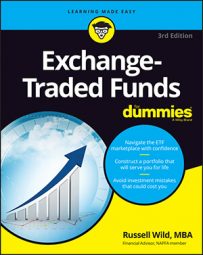The keys to successfully manage a portfolio include diversification and patience. When considering your ETF purchases, be sure to avoid these common mistakes that investors make:
Improper Diversification
Thou shalt not put all thy eggs in one basket is perhaps the first commandment of investing, but it is astonishing how many sinners there are among us. ETFs allow for easy and effective diversification. By investing in ETFs rather than individual securities, you have already taken a step in the right direction. Don’t blow it by pouring all your money into one ETF in a single hot sector!
You want to invest in both stock and bond ETFs, and both U.S. and international securities. You want diversification on all sides. Invest, to the extent possible, mostly in broad markets: value, growth, small cap, large cap. On the international side of your portfolio, aim to invest more in regions than in individual countries. ETFs make such diversification easy.
Sell out when the going gets tough
It can be a scary thing, for sure, when your portfolio’s value drops 10 or 20 percent . . . never mind the 40 percent that an all-stock portfolio would have lost in 2008 (demonstrating graphically why you shouldn’t have an all-stock portfolio).
Keep in mind that if you invest in stock ETFs, that scenario is going to happen. It has happened many times in the past; it will happen many times in the future. That’s just the nature of the beast. If you sell when the going gets tough, you lose the game. The stock market is resilient. Hang tough. Bears are followed by bulls (think 2009 and 2010).
Your portfolio — as long as you are well diversified — will almost surely bounce back, given enough time.
Too much attention to recent performance
Many investors make a habit of bailing out of whatever market segment has recently taken a dive. Conversely, they often look for whatever market segment has recently shot through the roof, and that’s the one they buy. Then, when that market segment tanks, they sell once again. By forever buying high and selling low, their portfolios dwindle over time to nothing.
When you build your portfolio, don’t overload it with last year’s ETF superstars. You don’t know what will happen next year. Stay cool. A few years’ returns tell you nothing.

